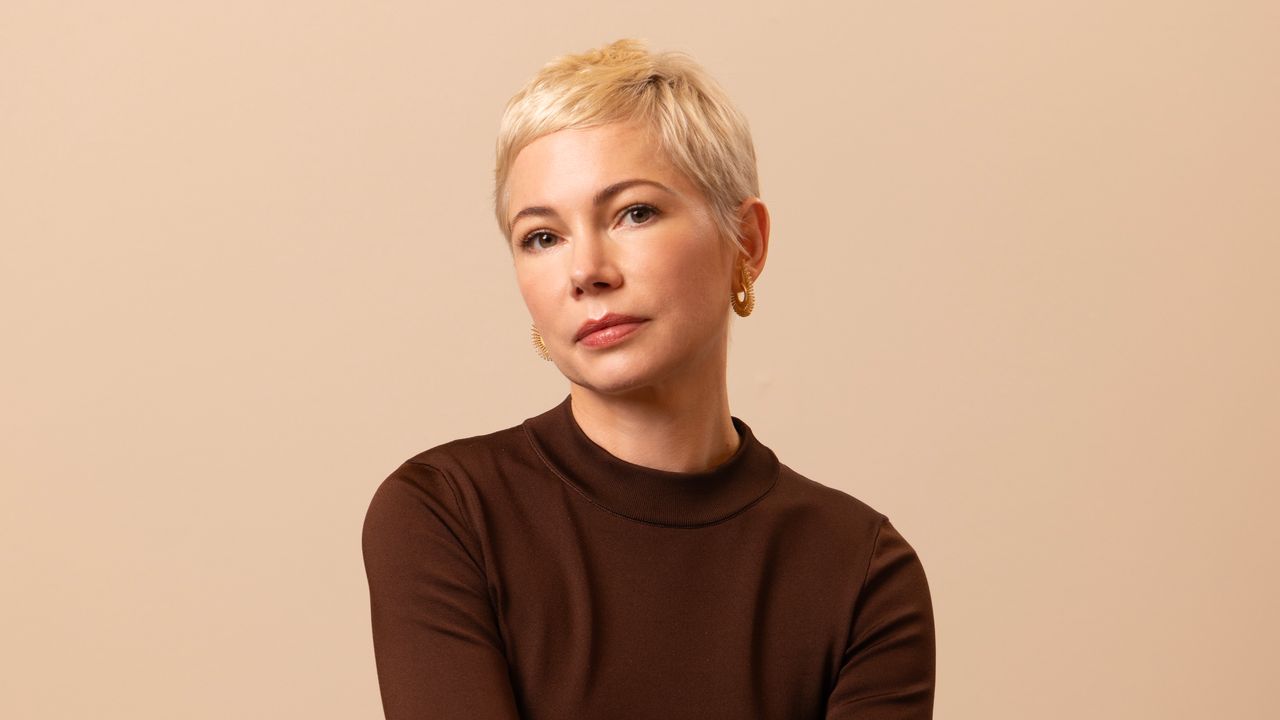I’ve had to play people who have bigger magnetic fields than I do: Like Mitzi Fabelman or Marilyn. Those really forced some painful growth to project
I’ve had to play people who have bigger magnetic fields than I do: Like Mitzi Fabelman or Marilyn. Those really forced some painful growth to project myself further into space, and that’s tough for me. With this, the experience of getting up and walking out of a hospice bed, it really has stayed with me.
I would say Molly’s radical acceptance of what a body wants. She wanted to heal something even though her end was in sight—she didn’t want to go out broken. She had an idea about how to do it and she set herself on this very unusual course. She made it herself, she made it her own, she made it extremely personal. I think about that and about how we can all lean into our intuitions. There’s so much information and so many sources of information and so many things telling you “this is the way to parent” and “this is the way to dress” and “this is the way to” whatever. The thing that gets lost is intuition.
I think about it a lot as it relates to parenting. When I was raising my daughter, there were just a few books, and now there’s so much coming at you about “do it like this, do it like this,” and I’m so glad that I had this experience 20 years ago because I would feel so overwhelmed by all of the options now. This is a very meandering answer, but she just made very personal choices about how to live her life, and that’s so tough to do in this day and age. It runs the risk of humiliation, embarrassment, and gossip.
You mentioned Molly’s radical acceptance of her desires. With whatever you’re comfortable sharing, of course, what did you find particularly inspiring or instructive about that?
Do you mean the sexy stuff?
Sure.
I love Esther Perel, obviously. When I was first introduced to her work, which predates this show, my mind was blown. I had never had to talk about sex like this. I grew up in Montana and San Diego in the ’80s. It was very different. So I had a lot of fresh information about how we can think differently about sex, about pleasure, about identity—and to think of it as a inventive act. Yes, it can create. I just keep thinking, sex is our birthright. Our bodies were designed for pleasure. We’re not robots. Creativity also takes a lot of energy and that’s in tiny supply for everybody. It’s not like a magic wand or something, but I have been so moved by her work and how she talks about sex throughout your life and that sex that’s not sequestered to childbearing or during childbearing years.
So when this show came along I thought, “Oh wow, this is already chiming with something that I’m personally moved by.” What Liz and I didn’t know before, as two middle-aged white ladies, is: We got to consult with a few professional doms, and what we learned is that this is all happening, ideally, in a safe and sound and ultimately healing context. All these things that come along are jolts of electricity, and they rewire a mass circuitry.
This interview has been edited and condensed for clarity.
Listen to Vanity Fair’s Little Gold Men podcast now.

COMMENTS